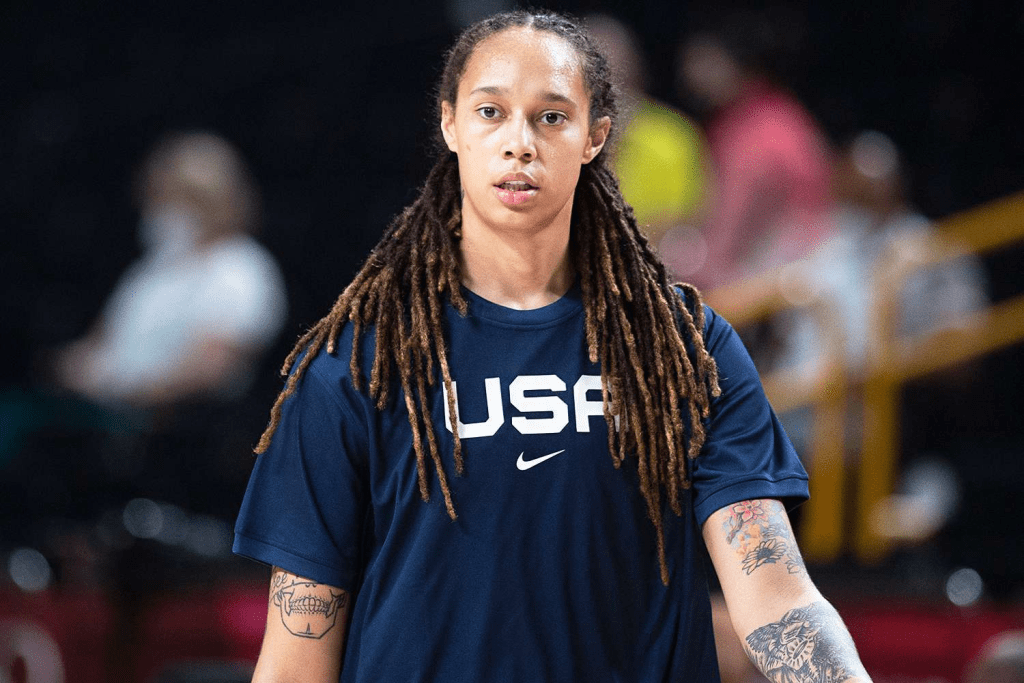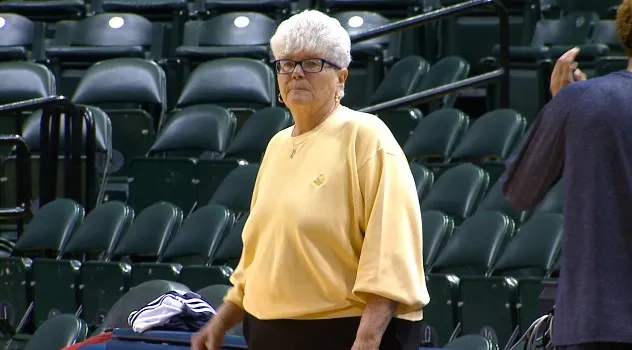The intersection of sports and activism has once again taken center stage, with Lin Dunn, the legendary basketball coach and director of the Indiana Fever, calling for Brittney Griner to be removed from the U.S. Olympic team. The controversy stems from Griner’s recent protest during the national anthem, which Dunn sees as a sign of disrespect to the country she represents.
This heated debate has sparked strong reactions from both sides, raising larger questions about patriotism, free speech, and the role of athletes in social movements. Should Griner’s actions cost her a spot on Team USA, or is this a matter of personal freedom? Let’s break down the controversy.

Lin Dunn’s Strong Stance: “You Don’t Deserve to Represent This Country”
Lin Dunn, a highly respected figure in women’s basketball, has long been an advocate for sportsmanship and national pride. Her recent remarks come amid growing frustration over athletes using national platforms to stage protests.
In a blunt statement, Dunn declared:
“When you disrespect the American anthem, you don’t deserve to represent this country.”
Her position is clear—athletes competing for the U.S. on an international stage should honor national symbols like the anthem. For Dunn, playing for Team USA is not just about talent—it’s about representing the values and unity of the nation.
But not everyone agrees.
Brittney Griner’s Protest and the Backlash That Followed
Brittney Griner, a dominant force in women’s basketball, is no stranger to controversy. While known for her athleticism, she has also been a vocal advocate for social justice and equality.
Recently, Griner chose to protest during the playing of the national anthem, an act that has divided public opinion.
- Supporters see it as a powerful statement against racial injustice and systemic inequalities.
- Critics argue that protesting national symbols while wearing the Team USA jersey is unacceptable.
Griner’s protest echoes past actions by athletes like Colin Kaepernick and Megan Rapinoe, who also took stands against injustices by kneeling during the anthem. The question remains—is an Olympic athlete’s primary role to compete or to make a statement?
Is Patriotism a Requirement for Representing Team USA?
Dunn’s call for Griner’s expulsion raises a fundamental question—should athletes be required to show patriotism if they are representing their country?
For many, playing for Team USA is an honor that comes with expectations. These expectations include:
✔️ Respecting national symbols, such as the anthem and the flag.
✔️ Displaying unity, especially on an international stage.
✔️ Setting an example, as athletes serve as ambassadors for their country.
On the flip side, free speech is a core American value. If an athlete disagrees with certain national policies, should they be forced to participate in patriotic traditions?
This clash between patriotism and personal rights has fueled intense debate.

The Bigger Picture: Sports, Activism, and Free Speech
This is not the first time athletes have used their platforms for activism.
- Colin Kaepernick took a knee during the national anthem, igniting widespread controversy in the NFL.
- Megan Rapinoe followed suit, refusing to sing the anthem in protest of social injustices.
- Muhammad Ali refused to serve in the Vietnam War, citing racial inequalities, and faced severe backlash.
History has shown that sports and activism are deeply intertwined. But where do we draw the line? Should national representation come with rules about political expression, or should athletes have the freedom to protest?
Public Reactions: A Nation Divided
Lin Dunn’s statement set social media on fire, with thousands weighing in on both sides.
🔵 Supporters of Dunn argue:
- “If you can’t respect the anthem, you shouldn’t wear the jersey.”
- “Team USA represents ALL Americans. Protesting on that stage is inappropriate.”
- “Athletes should focus on sports, not political agendas.”

🔴 Supporters of Griner counter:
- “Freedom of speech means freedom to protest.”
- “Patriotism isn’t forced—it’s earned.”
- “Sports have always been a platform for social change.”
The division is clear. But will it impact Griner’s status on Team USA?
What Happens Next? Could Griner Actually Be Removed?
While Dunn has voiced strong opposition, the final decision rests with Team USA officials.
✔️ There is no official rule requiring athletes to stand for the anthem.
✔️ Past Olympic athletes have protested without being removed from the team.
✔️ The Olympic Committee has historically allowed peaceful demonstrations.
However, if public pressure grows, officials may face pressure to take action. Will Team USA support Griner’s right to protest, or will they side with Dunn’s call for unity?
Time will tell.

Final Thoughts: The Debate Over Patriotism and Protest in Sports
Lin Dunn’s call for Brittney Griner’s expulsion has ignited a debate far bigger than basketball. At its core, this is about:
- What it means to represent your country.
- The balance between patriotism and free speech.
- How sports and activism should coexist.
Some believe that athletes should leave politics off the court, while others argue that sports have always been a stage for change.
No matter where you stand, one thing is certain—this debate is far from over. As Griner prepares for the Olympics, the world will be watching not just her performance, but the message she chooses to send.